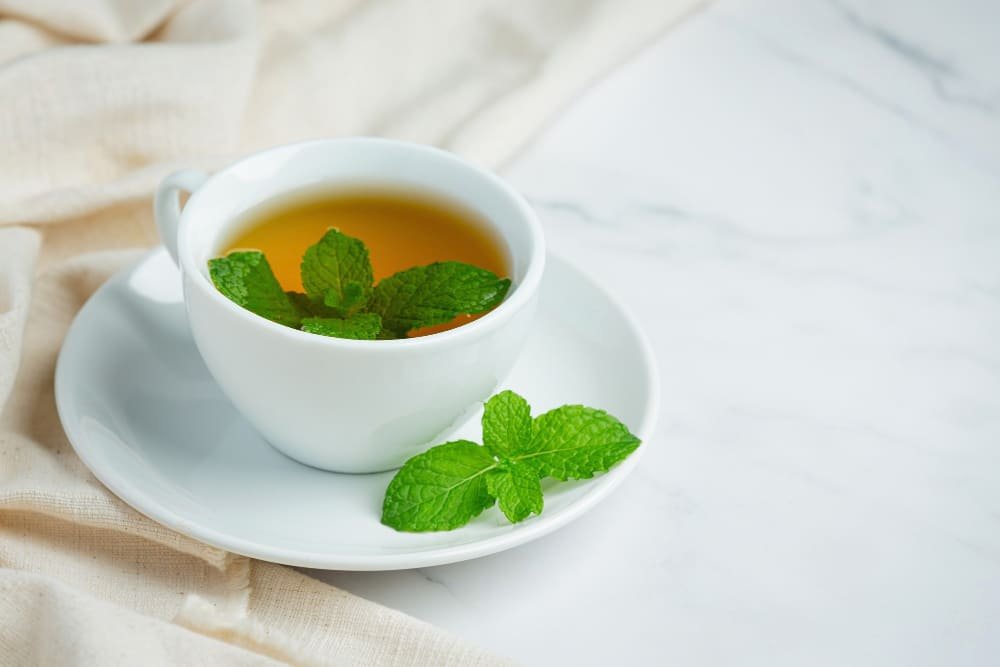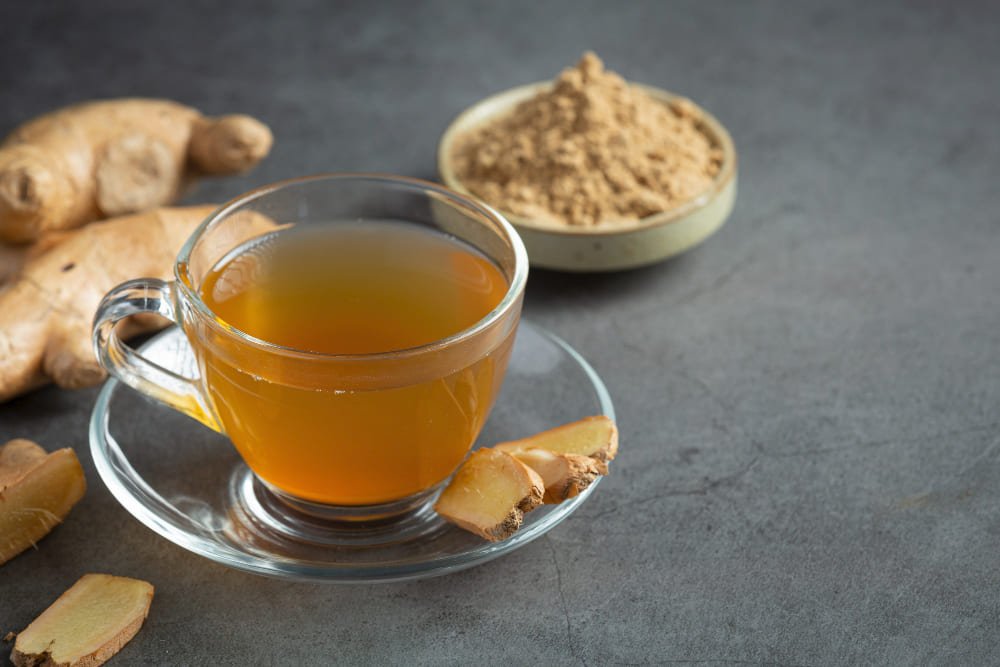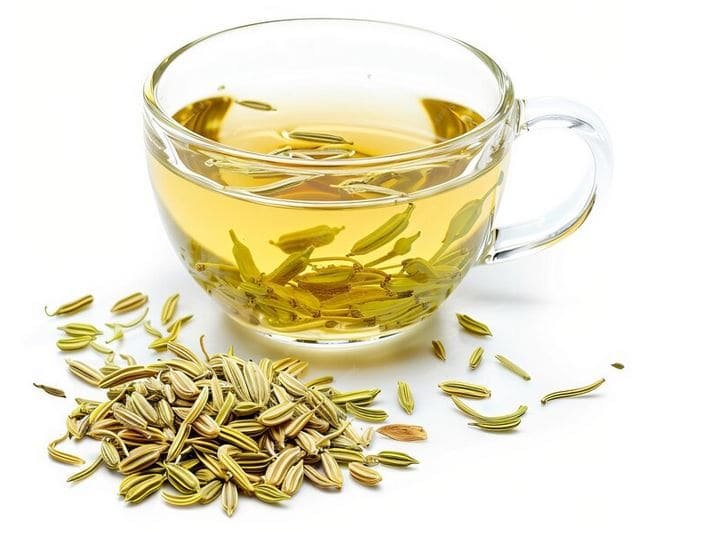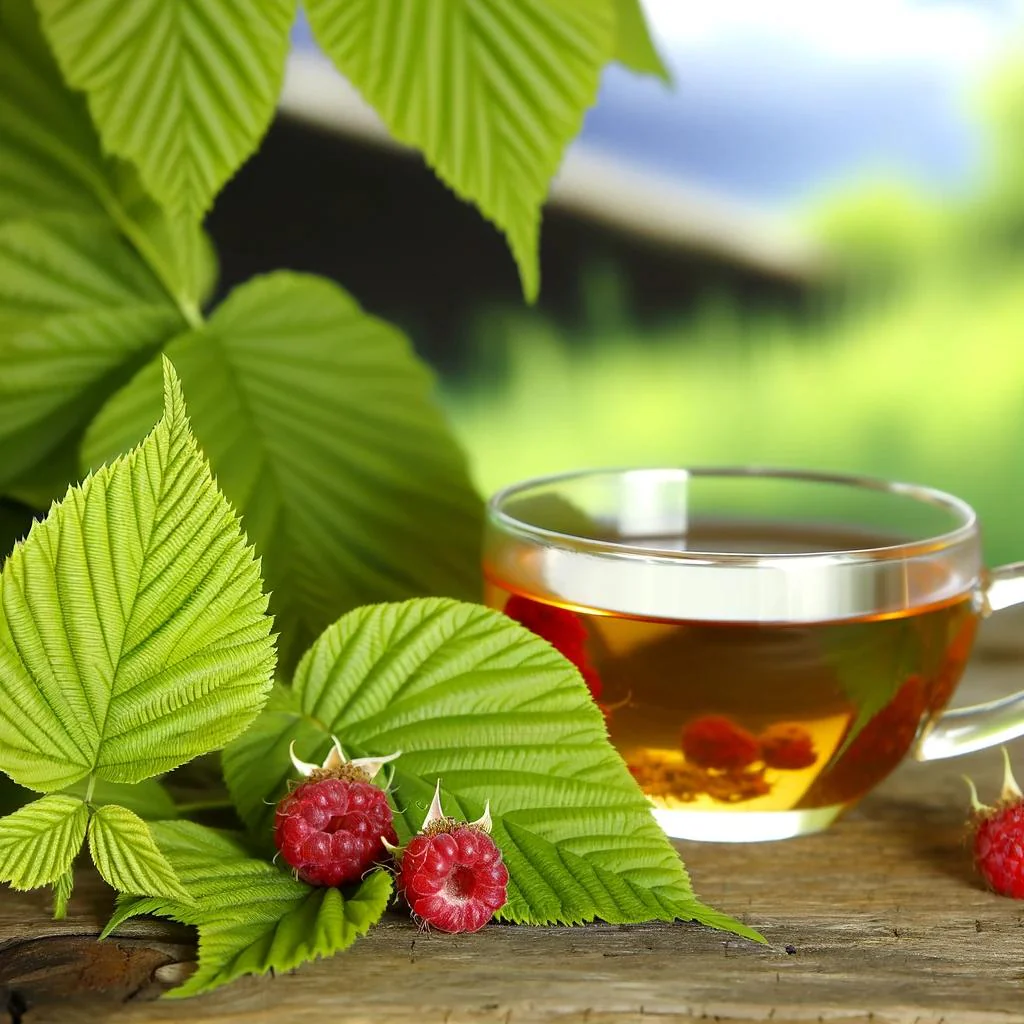Digestive health is a cornerstone of overall well-being, influencing everything from our mood to our immune system. In the quest for digestive balance, many turn to natural remedies, with tea being a time-honored solution. The soothing warmth of a cup of tea is not just comforting; it can also offer real benefits for digestive wellness. This article explores the best teas for digestion, delving into the science behind their healing properties and how they can be incorporated into daily routines for optimal gut health.
Table of Contents
Understanding Digestive Health and Tea
Digestive health is a complex interplay of factors, including diet, lifestyle, and even stress levels. When this delicate balance is disrupted, it can lead to discomfort and a range of digestive issues. Tea, with its myriad of bioactive compounds, has been shown to positively influence digestion. From green tea’s metabolism-boosting catechins to peppermint tea’s muscle-relaxing menthol, each variety offers unique benefits.
The Role of Tea in Digestive Wellness
Tea has been a part of human culture for millennia, not just as a beverage but as a medicinal remedy. Its role in digestive wellness is backed by both traditional practices and modern science. Certain teas can stimulate the production of digestive juices, aid in the breakdown of food, and alleviate symptoms like bloating and gas. They can also have a calming effect on the gastrointestinal tract, easing conditions such as irritable bowel syndrome (IBS).
Herbal Solutions for Digestive Comfort
Herbal teas, in particular, are renowned for their digestive benefits. Ingredients like ginger, fennel, and chamomile have been used in herbal medicine to treat digestive ailments. These herbs contain compounds that can reduce inflammation, encourage healthy gut flora, and provide relief from indigestion and nausea.
Types of Tea for Digestion
Green Tea: Enhancing Digestive Metabolism

Green tea, rich in catechins and antioxidants, has been shown to enhance metabolic function and aid in the digestive process. Studies suggest that the polyphenols in green tea can help regulate the digestive system, potentially reducing symptoms like bloating and improving gut health.
Peppermint Tea: Soothing Digestion and Bloating

The natural oils in peppermint, particularly menthol, have a soothing effect on the digestive tract. This can help alleviate symptoms of indigestion, including gas and bloating. Peppermint tea is often recommended for its calming properties and its ability to ease gastrointestinal discomfort.
Ginger Tea: Stimulating Digestive Enzymes

Ginger tea is known for its ability to stimulate the production of digestive enzymes, which can help with the breakdown of food and absorption of nutrients. It’s also been used to treat nausea and to soothe an upset stomach, making it a versatile choice for digestive health.
Herbal Tea: A Holistic Approach to Digestive Health
Herbal teas encompass a variety of plants and herbs, each with their own set of benefits for digestive health. Chamomile, for instance, is known for its gentle soothing effect, while dandelion tea can act as a mild laxative to help with regularity.
Mint Tea: Refreshing Digestive Aid
Mint tea, including varieties such as spearmint, can offer relief from digestive issues. Its refreshing flavor is matched by its ability to relax the muscles of the stomach, potentially helping to reduce symptoms like cramping and spasms.
Fennel Tea: Traditional Digestive Support

Fennel tea has a long history of use as a digestive aid. It can help relax the gastrointestinal tract, reduce gas, and support overall digestive comfort. Fennel’s unique flavor profile adds to the experience of sipping this beneficial brew.
Benefits and Concerns of Tea for Digestion
Weight Loss and Digestion: Finding the Balance
Tea, especially green tea, has been associated with weight loss due to its metabolism-boosting properties. The catechins and caffeine in tea can enhance metabolic rate and increase fat oxidation. However, it’s important to note that tea should complement a healthy diet and exercise regime for effective weight loss.
Bloating and Digestion: Selecting the Right Tea
Herbal teas like peppermint, ginger, and fennel are known for their ability to alleviate bloating and improve digestion. These teas contain compounds that relax the digestive tract, reduce gas production, and help food pass through the gut more easily.
Gut Health: Herbal Teas to the Rescue
Herbal teas are rich in polyphenols that may reduce inflammation and improve the balance of healthy bacteria in the digestive tract. Teas such as chamomile, dandelion root, and licorice can support gut health and alleviate symptoms of digestive disorders like IBS.
Sleep Aid: Teas for a Restful Night
Certain herbal teas, including chamomile, valerian root, and lavender, have natural sedative properties that can help improve sleep quality. These teas can be a part of a bedtime routine to promote relaxation and combat insomnia.
Optimal Consumption Timing for Tea
Nighttime Digestion: Best Teas Before Bed
To promote digestion and ensure a restful sleep, caffeine-free herbal teas are recommended. Teas like ginger, chamomile, and peppermint are popular choices. These teas are known for their soothing properties and can help alleviate digestive discomfort, such as bloating and indigestion, without disrupting sleep patterns.
Morning Rituals: Energizing Teas After Waking Up
Starting the day with an energizing tea can help awaken the senses and boost alertness. Black tea, oolong tea, and matcha are known for their higher caffeine content and can serve as an excellent morning beverage. For those who prefer a gentler start, white tea or herbal teas like peppermint or chamomile may be more suitable.
Post-Meal Digestion: Teas for After Eating
Drinking tea after a meal can aid in digestion and provide a sense of comfort. Peppermint tea, dandelion root tea, chamomile tea, licorice root tea, and pu-erh tea are among the best options for supporting the digestive system after eating. These teas can help soothe the stomach and improve the digestive process.
Teas for Specific Conditions and Preferences
Acid Reflux: Gentle Teas for Sensitive Stomachs
For those with acid reflux, gentle teas that soothe the stomach and esophagus without triggering symptoms are essential. Herbal teas such as ginger tea, chamomile tea, and licorice tea are known for their anti-inflammatory properties and can help reduce esophageal inflammation.
However, it’s important to note that while peppermint tea is soothing for the digestive system, it may worsen acid reflux in some individuals.
Metabolism Boosting: Teas for Enhanced Digestive Performance
Teas that help boost metabolism can aid in weight loss and improve digestive performance Green tea and oolong tea are rich in catechins, which can enhance the body’s ability to metabolize fat.
Other teas like yerba maté and guayusa are also known for their thermogenic effects, which can increase calorie burn.
Pregnancy-Friendly Teas: Safe Options for Expecting Mothers
During pregnancy, it’s crucial to choose teas that are safe and can provide relief from pregnancy symptoms. Teas like rooibos, ginger, and lemon balm are considered safe during pregnancy.

Red raspberry leaf tea is also recommended, especially later in pregnancy, for its potential benefits for the uterus. However, it’s important to avoid teas with high caffeine content and certain herbal teas that may not be safe during pregnancy.
Best Commercial Digestive teas
Pukka Tea: A Trusted Name in Digestive Teas

Pukka Tea is well-known for its organic and ethically sourced ingredients. They offer a variety of blends that are designed to aid digestion. For instance, their After Dinner Tea is made with organic aniseed, cardamom, chicory, fennel, ginger, and licorice.
These ingredients are known for their digestive benefits, such as soothing the stomach and aiding in the digestion process after meals. Pukka Tea’s commitment to high-quality ingredients makes it a trusted name among those seeking natural digestive support.
David’s Tea: Innovative Blends for Digestion

David’s Tea provides a selection of teas that are formulated with digestion in mind. Their Organic Le Digestif Tea contains a blend of fennel, ginger, and peppermint, which are classic digestive aids. This particular tea is caffeine-free and is ideal for settling the stomach after a heavy meal.
The innovative blends from David’s Tea are designed to soothe the throat and relieve stomach aches, making them a popular choice for those looking to ease digestive issues.
Preparation and Formats
Hot Teas: Comforting and Effective
Hot teas are a traditional remedy for digestive discomfort. The warmth of the tea itself can be soothing to the stomach, while the specific herbs used can provide additional benefits. For example, ginger tea is known for its ability to alleviate nausea and promote gastric emptying
Peppermint tea can relax the digestive tract and may help with symptoms of IBS. The preparation of hot tea is crucial; using fresh, clean water and steeping the tea at the correct temperature for the right amount of time is key to extracting the full benefits of the herbs.
Loose Leaf Teas: The Purest Form of Digestive Aid
Loose leaf teas are often considered superior to tea bags due to their larger leaf size, which allows for a fuller extraction of flavors and medicinal properties. They are also less processed than bagged teas, which means they retain more of their natural beneficial compounds. For digestive health, loose leaf teas like green tea can be particularly helpful due to their polyphenol content, which may reduce inflammation and improve the balance of healthy bacteria in the gut.
Homemade Teas: Personalized Blends for Digestion
Creating homemade tea blends allows for customization based on personal taste and specific digestive needs. Ingredients like fennel seeds, coriander seeds, and fenugreek seeds can be mixed to create a blend that supports digestion, reduces gas, and relieves bloating. Homemade teas can also incorporate fresh ingredients like ginger or mint for added potency and freshness.
Regional Preferences for Digestive Teas
Philippines: Local Teas for Digestion
The Philippines has a rich tradition of using local herbs and plants to create teas that aid digestion. Some of the most popular local teas include:
- Ginger and Turmeric Tea: Known locally as “salabat,” ginger tea is a traditional Filipino remedy for soothing the throat and providing relief from common illnesses, including digestive discomforts. Turmeric, which contains curcumin, is also turned into tea and is known for its anti-inflammatory properties.
- Blue Ternatea Tea: This vibrant blue flower is not only visually appealing but is also loaded with antioxidants and has been gaining popularity for its health benefits.
- Pandan Tea: With its sweet flavor and hints of coconut, pandan tea is a delightful choice for those looking for a unique taste experience.
- Lemongrass Tea: Often used for its calming effects and ability to aid digestion.
- Malunggay Tea: Made from the leaves of the moringa tree, this tea is rich in nutrients and antioxidants, making it a healthy choice for supporting digestion.
UK: Popular Digestive Teas and Trends
In the UK, the preference for digestive teas includes a variety of herbal blends known for their efficacy in promoting gut health:
- Peppermint Tea: A classic choice for aiding digestion and relieving symptoms associated with IBS.
- Ginger Tea: Valued for its stomach-settling properties and ability to ease nausea.
- Chamomile Tea: Often used for its calming effects on the digestive system and its potential to reduce stress and anxiety.
- Fennel Tea: Known for its anti-inflammatory properties and effectiveness against digestive issues like bloating and gas.
- Dandelion Tea: A herbal tea that’s sometimes included in digestive wellness routines for its potential benefits
Regional Preferences for Digestive Teas in India
India’s rich and diverse tea culture extends beyond the beloved chai, encompassing a variety of digestive teas that cater to regional tastes and traditions. Here’s a look at some of the popular digestive teas across different parts of India:
1. North India: Ajwain Tea
In the northern regions, Ajwain (carom seeds) tea is a popular choice for aiding digestion. Ajwain is known for its strong, aromatic flavor and its ability to relieve indigestion and bloating. This tea is often consumed after meals to help soothe the stomach.
2. West India: Fennel Tea
In western India, particularly in Gujarat and Maharashtra, fennel tea is a common digestive aid. Fennel seeds, known for their sweet and slightly licorice-like taste, are brewed into a soothing tea that helps with digestion and reduces gas and bloating.
3. South India: Cumin Tea
Cumin tea is favored in the southern states like Tamil Nadu and Kerala. Cumin seeds, with their earthy and slightly peppery flavor, are boiled in water to create a tea that aids digestion and improves metabolism. This tea is often consumed after heavy meals.
4. East India: Ginger Tea
In the eastern regions, including West Bengal and Assam, ginger tea is a popular digestive beverage. Ginger, known for its spicy and warming properties, helps in stimulating digestion and alleviating nausea. This tea is often enjoyed with a touch of honey or lemon.
5. Central India: Coriander Tea
In central India, coriander tea is a preferred choice for digestive health. Coriander seeds, with their mild and citrusy flavor, are brewed into a tea that helps in reducing indigestion and promoting overall digestive health.
Digestive Teas in the USA
In the United States, the popularity of digestive teas has been on the rise as more people seek natural remedies for digestive health. Here are some of the most favored digestive teas across the country:
1. Peppermint Tea
Peppermint tea is widely appreciated for its refreshing flavor and digestive benefits. The menthol in peppermint helps relax the muscles of the gastrointestinal tract, which can alleviate symptoms of bloating, gas, and indigestion. It’s a common choice for those looking to soothe an upset stomach.
2. Ginger Tea
Ginger tea is another popular option, known for its spicy and warming properties. Ginger contains compounds like gingerols and shogaols that can help stimulate digestion and reduce nausea. This tea is often recommended for those experiencing digestive discomfort or motion sickness.
3. Chamomile Tea
Chamomile tea is celebrated for its calming effects, which extend to the digestive system. It can help reduce inflammation and relax the muscles of the digestive tract, making it a good choice for those dealing with indigestion or stomach cramps.
4. Fennel Tea
Fennel tea is favored for its slightly sweet and licorice-like flavor. Fennel seeds contain compounds that can help relax the muscles in the intestines and reduce gas and bloating. This tea is often consumed after meals to aid digestion.
5. Dandelion Root Tea
Dandelion root tea is known for its detoxifying properties. It can stimulate the liver and promote bile production, which aids in digestion and helps with the breakdown of fats. This tea is often used as a natural remedy for digestive issues and to support liver health.
Digestive Teas in China
China has a long-standing tradition of using teas not only for enjoyment but also for their medicinal properties. Digestive teas are particularly popular, offering a natural way to support digestive health. Here are some of the most favored digestive teas in China:
1. Pu-erh Tea
Pu-erh tea is a fermented tea known for its rich, earthy flavor and digestive benefits. It helps break down fats and oils, making it an excellent choice after heavy meals. Pu-erh tea is also believed to aid in weight management and lower cholesterol levels.
2. Barley Tea
Barley tea is renowned for its stomach-nourishing properties. Rich in vitamins, it offers excellent protection to the gastric mucosa without causing irritation. Barley tea is often consumed to regulate the digestive system and soothe the stomach.
3. Osmanthus Flower Tea
Osmanthus flower tea is valued for its medicinal properties and warm nature. It helps alleviate symptoms like chronic loss of appetite and abdominal pain. This tea is simple to prepare and provides a soothing experience.
4. Red Date Tea
Red date tea is particularly beneficial for women due to its blood-nourishing qualities. It protects the stomach and offers a delicious and nutritious beverage that supports overall digestive health.
5. Clove Tea
Clove tea is rich in compounds like eugenol and clove oil, which stimulate gastric juice secretion and promote digestion. Consuming clove tea after meals can alleviate discomfort and support gastric well-being2.
China’s diverse range of digestive teas reflects its deep-rooted tradition of using natural remedies for health and wellness. From the earthy Pu-erh tea to the soothing Osmanthus flower tea, these beverages offer a variety of benefits that cater to different digestive needs. Whether you’re looking to soothe an upset stomach or support overall digestive health, there’s a Chinese digestive tea for everyone.
FAQs about Digestive teas
What tea is best for digestion?
Dandelion Root Tea is known for speeding up digestion, making it a great choice.
Which green tea is best for digestion?
Sencha green tea is rich in catechins and is known for encouraging digestive health.
Which herbal tea is best for digestion?
Peppermint Tea is excellent for gut relaxation and can alleviate symptoms like indigestion, bloating, and gas.
What is the best tea for digestive problems?
Ginger Tea can be very effective for nausea and increasing enzymes that speed up digestion.
Which tea is best for the digestive system?
Green Tea is beneficial for the gut microbiome and reducing inflammation, supporting the overall digestive system.